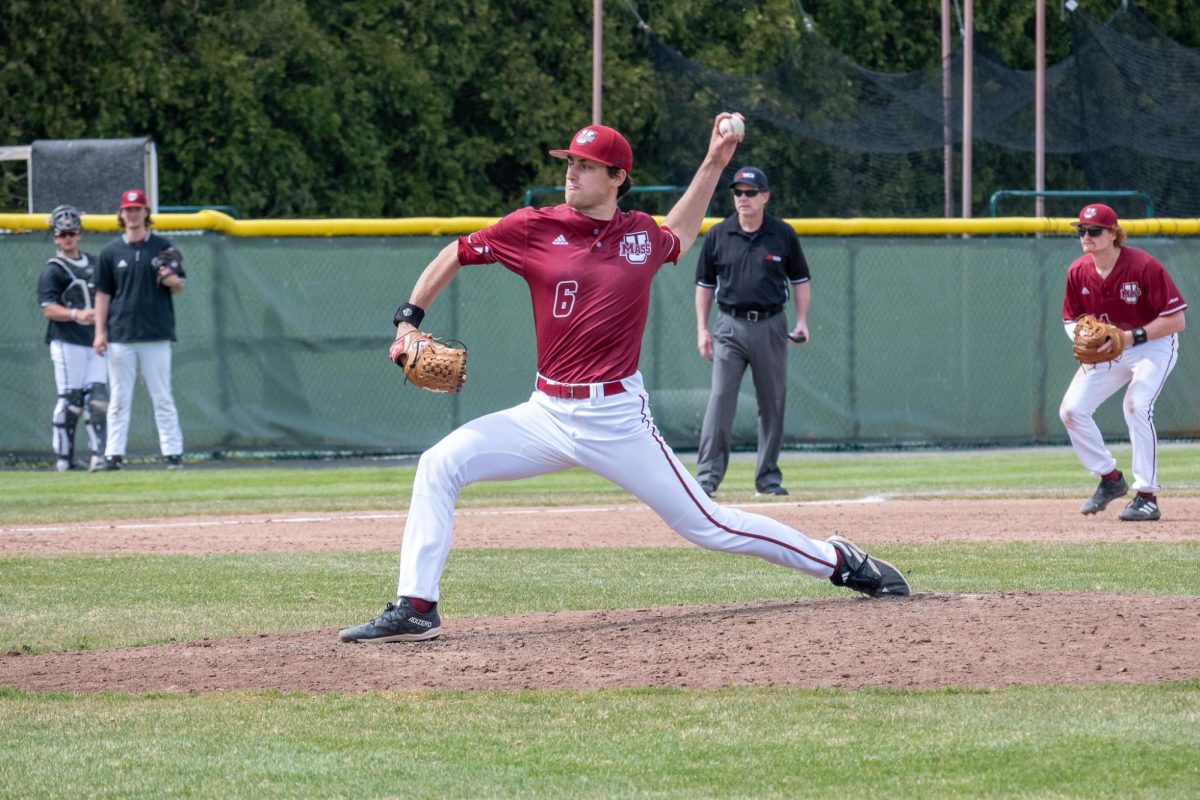The Afro-Latino movement reached the University of Massachusetts last Tuesday, as Jesus “Chucho” Garcia lectured about a social movement in Venezuela.
The lecture, titled “The Afro-Venezuelan Social Movement and the New Left in Latin America,” brought a global perspective to UMass students.
He explained the more complex issues that exist in this community other than the stereotypes that are in the media about Latin America, “We are stereotyped as people that play drums, and shake [our buttocks] not as intellectuals,” Garcia said.
Garcia is an intellectual activist and leader of the network of Afro-Venezuelan organizations and Strategic Alliance of Afro-descendants in Latin America. The lecture highlighted changes he feels must be made in the Venezuelan constitution and the involvement of the United States in the social movement.
Garcia gave his speech in Spanish, his native tongue, and it was translated into English by UMass faculty members, including Professor Agustin Lao Montes, who introduced Garcia to the attendees.
“I’m not Chavista, I’m not Bolivarian, I’m a revolutionary,” Garcia said.
According to Garcia, this social movement evolves around racial and economic inequality in Venezuela.
“The problem of racism [in Venezuela] is that is under the veil of racial mixture,” Garcia said. Education, according to Garcia, is the solution to the country’s problems.
That is why the Afro-Venezuelan movement has made it a priority to implement more African elements in the school curriculum.
“We went to the ministry of education to demand our participation,” Garcia said.
These demands were discussed with Cuban instructors that came to Venezuela to implement a new school agenda. Garcia admitted that the Cuban instructors had strategies, methods and objectives that should be included in the Venezuelan school system.
However, when the question about the content that should be taught came up, disagreements arose.
“The Cubans thought the issue of racism should not be included,” Garcia said. After a month and a half of deliberations, Garcia said that they had won their petition.
Garcia expressed that the Afro-Venezuelan contributions needs to be included because, “[Professors] are the first reproducers of racism,” according to Garcia.
According to Garcia, one of the mistakes made during the Cuban revolution was ignoring of the racism issue.
In order for the Afro-Venezuelan movement to gain momentum, changes need to be upheld in the Venezuelan constitution, according to Garcia.
“Chavez proposed a constitution reform, which among other things would announce Venezuela as a socialist nation, and dismantle the capitalist that it is now, in the 1999 constitution, we were not officially recognized,” Garcia said.
This new addition in the Venezuelan constitution grants recognition to the indigenous population, but not African descendants in Venezuela.
The movement remains strong, as Garcia spoke about the accomplishments the Afro-Venezuelan organizations have made since 2005 by creating a presidential commission against racism.
“To advance recognition in the issues in the constitution in the organic laws of education, cultural, and land laws, [we] need to push the topic into public policy,” Garcia said.
Although it was the first time Garcia visited UMass, the United States has been involved with this social movement.
Garcia questioned the true intentions of the United States’ support of the social movement.
“The Afro blackness social movements have become important to the U.S – it is not an accident that there was a delegation in Columbia,” Garcia said.
Garcia focused on how the United States wants to capture this black movement, the creation of schools of leadership that were put in place by Colin Powell, has only one objective.
“We see it as [that the U.S] will pick leaders that will support invasions,” Garcia said.
This is a subtle manipulation tactic from the United States to catch the black movement in Latin America, Garcia said during his lecture.
“The agenda is low intensity, low profile intervention, is not like in 2004 the overt intervention in Haiti,” Garcia said.
“Take a look at the diaspora in Latin America in light of the changes that are happening now,” Garcia said.
The lecture was hosted by the Afro-American Studies department and the center for Latin American, Caribbean and Latino Studies. Students and faculty alike crowed the Shirley Graham Du Bois Library located in the New Africa house.
“Garcia’s thought-provoking presentation at UMass-Amherst enables us all to see how global the problems of capitalism and white supremacy truly are and how our local struggles are significant fronts in a worldwide resistance movement,” said Amilar Shabazz, department chair of Afro-American Studies. “Certain details may be different and delivered in a different language, but the bottom-line truth is the same: The unchecked power of rampant racism and corporate capitalism equals disease, death and dislocation whether in Caracas or Katrina.”
“I’m interested in Latin American social movement, but more familiar with Mexico,” said Quincy Saul, a junior at Hampshire College,. “It was very interesting to hear a radical perspective in Venezuela that is both critical of Chavez and recognizes the change.”
Gisel Saillant can be reached at [email protected].






